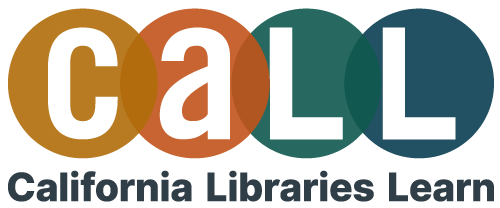Program Type:
WebinarProgram Description
Event Details
**NOTE**: Access information for this learning event will be sent to all registrants by American Library Association before the start of the event. In order to take this course/attend this webinar you will need to create (or use an existing) ALA account to proceed. It is free to create an account and you do not need to be an ALA member. If you do not wish to create an ALA account please cancel your registration.
Libraries have an opportunity—and a responsibility—to be welcoming, inclusive, and accessible to everyone in their communities. Through principles of universal design and Universal Design for Learning (UDL), libraries can create and enhance access and accessibility for all patrons, including the one in four Americans who are labeled as having disabilities.
In this webinar, Dr. Clayton Copeland provides a framework to bring IDEAS (Inclusion, Diversity, Equity, and Accessibility Solutions) to libraries and to the communities they serve. Participants will learn about the foundations of accessibility and universal design principles in communication, programming, services, and marketing.
Learning Outcomes
At the conclusion of this webinar, participants will be able to:
- Define and describe principles of universal design and Universal Design for Learning (UDL);
- Apply these principles to foster accessible communication, programming, services, and marketing in their libraries; and
- Strategically implement inclusion, diversity, equity, and accessibility solutions (IDEAS).
Who Should Attend
This webinar is intended for all public library staff and administrators.
Panelists
Dr. Clayton A. Copeland (she/her) is the director of the Laboratory for Leadership in Equity of Access and Diversity (LLEAD) at the University of South Carolina’s School of Information Science. Much of her research, which has been funded by the American Library Association, focuses upon equity of access to information for people with disabilities. Copeland also pursues research interests in universal design and Universal Design for Learning, literacy, facilities planning, technology, and materials and programming for children and young adults.
Copeland’s dissertation research was among the first to explore the lived experiences of library patrons with disabilities. Her research and work explore equity, access, and inclusion as they pertain to the physical and virtual environments and interactions among library patrons and staff. She recently co-authored and edited Disabilities and the Library:Fostering Equity for Patrons and Staff with Differing Abilities.
CALL Training Partner for this Event: American Library Association
Additional Information
Enrollment Statement
I understand that a space will be reserved for me in this learning opportunity at a cost to CALL, and if I am unable to attend this learning opportunity, I will cancel my enrollment as soon as possible and before the start date.
Single Enrollment Disclaimer
I understand that I can register for only one course at a time (no concurrent courses). If I do not attend this course, I understand that I may forfeit the opportunity to enroll in additional CALL courses during this fiscal year.
